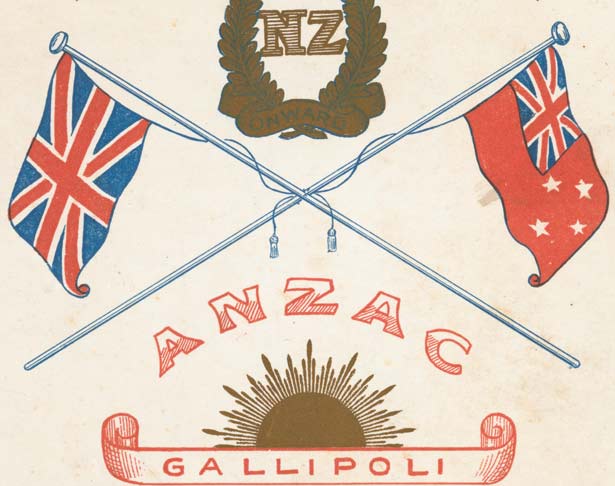The Origins of ANZAC Day: A Comprehensive Guide for Parents
Hello there, wonderful parents! If you’re looking to enlighten your family about the significance of ANZAC Day, a day of remembrance and national pride for Australians and New Zealanders, you’ve come to the right place. Let’s embark on a journey through time to uncover the origins of this special day that has been etched into the heart and soul of these nations. Don your learning caps – here we go!
What is ANZAC Day?
ANZAC Day is one of the most important national occasions for both Australians and New Zealanders. It falls on April 25th every year and marks the anniversary of the first major military action fought by the Australian and New Zealand Army Corps (ANZAC) during the First World War. This day is a solemn one, dedicated to remembering those who have served and sacrificed for their country.
The Dawn of ANZAC Day
The story of ANZAC Day begins on the 25th of April, 1915, when the ANZAC forces landed on the Gallipoli Peninsula in Turkey. The objective was to capture Constantinople (now Istanbul), the capital of the Ottoman Empire, an ally of Germany. The hope was to open up the Dardanelles to the allied navies and eventually knock Turkey out of the war. However, the campaign turned into a grueling eight-month battle with heavy casualties on both sides, eventually leading to the withdrawal of allied forces.
The bravery, endurance, and comradeship that the ANZAC soldiers displayed during the campaign left a powerful legacy. The term ANZAC stands for Australian and New Zealand Army Corps, and it quickly became synonymous with the spirit of both nations.
How ANZAC Day Came to Be
The first ANZAC Day commemorations were held the following year, in 1916. April 25th was officially named ANZAC Day in 1916, and services were held throughout Australia, a march took place in London, and a sports day was held in the Egyptian desert.
In its infancy, ANZAC Day ceremonies were very much focused on the remembrance of those who had died. But over time, the scope of the day has expanded to honor all veterans and serving members of the armed forces from both countries.
ANZAC Day Traditions
Over the decades, traditions have formed that make ANZAC Day a poignant time for Australians and New Zealanders. Services at dawn, marches, the wearing of poppies, and the sounds of the Last Post trumpet call are key elements of contemporary commemorations. Dawn services are particularly significant because they reflect the time that the original ANZAC soldiers landed at Gallipoli.
The spirit of ANZAC has also been encapsulated in literature, and the words of the famous poem, “For the Fallen” by Laurence Binyon, are often recited: “They shall grow not old, as we that are left grow old: Age shall not weary them, nor the years condemn. At the going down of the sun and in the morning, we will remember them.”
Why ANZAC Day Matters to Families Today
Understanding the origins and significance of ANZAC Day is important, not only as a history lesson but also as a way to instill values such as courage, sacrifice, and mateship in our children. It’s an opportunity to teach them about their heritage and the importance of peace, as well as to honor the men and women who have shaped their country’s history.
As we continue to delve into ANZAC Day’s rich history and traditions, remember to talk to your kids about the enduring legacy of the ANZACs and why it remains such an essential part of the national consciousness.
So, join us on this informative adventure, as we explore how to meaningfully communicate the lessons of ANZAC Day to our younger generation. Let’s keep this vital piece of history alive, ensuring that the sacrifices of the past are not only remembered but also serve as poignant lessons for a brighter, more peaceful future. And on that note, let’s continue our introspective journey into the heart of ANZAC Day…
In the next section, we will take a closer look at the Gallipoli campaign and its enduring impact, understand the development of ANZAC Day over the years, and discover more ways you and your family can commemorate this day of reflection and respect.

5 Things Parents Should Know in Preparing for ANZAC Day
- Understanding the Historical Context: It’s beneficial for parents to have a grasp on the historical significance of the Gallipoli campaign and its impact on ANZAC Day. Explain to your children that this was not just a battle; it was a defining moment that helped shape the national identities of both Australia and New Zealand.
- Explaining the Importance of Remembrance: ANZAC Day is about honoring the sacrifice and service of military personnel. Share stories of bravery and remembrance with your children to help them understand why it’s important to pay our respects to those who have served.
- Participating in ANZAC Day Events: From attending dawn services to watching parades, there are many public events that families can take part in. Prepare your children for what to expect and explain the symbolism behind traditions such as the minute of silence and the playing of the Last Post.
- Respecting ANZAC Traditions: Familiarize your family with ANZAC traditions like the wearing of poppies and baking ANZAC biscuits. These small acts are not only educational but also a respectful way to connect with the community and partake in the spirit of the day.
- Encouraging Reflection and Discussion: Use ANZAC Day as a starting point for deeper discussions on themes such as peace, freedom, and the cost of conflict. Encourage your children to ask questions and express their thoughts on these complex subjects.
Diving Deeper into the Gallipoli Campaign and ANZAC Influence
The Gallipoli campaign is central to the ANZAC narrative. On ANZAC Day, we commemorate not just the event itself but the qualities it has come to represent. The ANZACs’ courage under fire, their ingenuity in the face of hardship, and their loyalty to each other are characteristics that both countries hold in high esteem.
The campaign, though ultimately unsuccessful, forged a bond between Australia and New Zealand. This shared history has led to the ANZAC spirit being invoked in times of hardship and challenge, inspiring both nations to face adversity with resilience and unity.
Evolution of ANZAC Day Commemorations
Over the years, ANZAC Day has evolved from a day of mourning to one of reflection and pride. While initially a somber remembrance of the fallen, it has broadened to recognize the service of all military personnel, past and present. This evolution reflects the changing attitudes towards war and peace but retains the original ethos of commemoration.
How Families Can Honor ANZAC Day
Participating in local ANZAC Day events helps families connect with their community and better understand the significance of the day. Additionally, discussing the importance of ANZAC Day with your children promotes a sense of heritage and patriotism.
For those unable to attend public events, creating a remembrance space at home or engaging with online tributes and documentaries can also be meaningful ways to observe the day. Moreover, volunteering with veteran organizations or contributing to remembrance funds allows families to give back and support those who have served.
Keeping the ANZAC legacy alive in the hearts and minds of our younger generation is not just about looking to the past; it’s about applying the values and lessons learned to create a better future. As families, we can ensure that the spirit of ANZAC continues to be a beacon of unity, courage, and hope for generations to come.
See more great Things to Do with Kids in New Zealand here. For more information see here
Disclaimer
The articles available via our website provide general information only and we strongly urge readers to exercise caution and conduct their own thorough research and fact-checking. The information presented should not be taken as absolute truth, and, to the maximum extent permitted by law, we will not be held liable for any inaccuracies or errors in the content. It is essential for individuals to independently verify and validate the information before making any decisions or taking any actions based on the articles.




